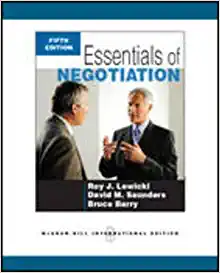Question
This assignment should be completed after all weekly online work has been submitted in the appropriate submission folders. Functional Assessment Booklet Your Task: There are
This assignment should be completed after all weekly online work has been submitted in the appropriate submission folders.
Functional Assessment Booklet
Your Task: There are 6 tasks to complete in this functional assessment booklet (numbered 1-6). You must complete all 6 items. You can choose to record your answers directly on this word document, or print it off and complete it as a hard copy and scan the document.
Upon completion, you must submit this booklet in the FOL submission folder titled Week 4- Individual Assignment 4.
This is your final assignment of the course. Good luck!
This assignment will be marked on the following completion and effort rubric:
Reflection:
Reflect on the following quote:
"Every challenging behaviour can be thought of as a child's solution to a problem and a form of communication."
Can you remember a time when you or someone you know used challenging behaviour to communicate or to solve a problem? Why did you use this method?
Aim for your reflection to be 1-2 paragraphs long
Video Learning: Understanding Challenging Behaviour
In the video, "Understanding Challenging Behaviour", what are 3 things that stood out for you/ that you learned.
(Video link found at: https://www.youtube.com/watch?v=acAJsiEKxzg)
------------------------------------------------------------------------------------------------------------------------------------------
1.
2.
Objective vs Inference Language:
Write 3 objective statements about the following child, remember not to use inferences:
An objective statement is something concrete, descriptive and what you know.
An inference is a judgment or subjective statement (an assumption or guess).
Johnny (ch) was very aggressive and always hit the other children because he wanted to play with every car and didn't want to share. Johnny (ch) threw major temper tantrums and never slept at naptime because he was too angry at the other children. Johnny (ch) never let any of the children finish their lunch first, and always had to eat his lunch the fastest.
Redefining Behaviour:
Rewrite the following behaviour statement, to be positive rather than negative:
"He throws major temper tantrums"
"She refuses to play with other kids"
"He wont do anything I ask"
Function & Hypothesis Strategies:
Listed below are typical functions and possible hypotheses about a challenging behaviour. Read each function, hypothesis and write 1-3 strategies you would try with this challenging behaviour and child.
Think about and write 1-3 strategies you would try with a child with this challenging behaviour.
Function: "Trying to obtain an object or attention"
Hypothesis: When he is not being acknowledged, he hides under the table
__________________________________________________________________________________________________________________________________________________________________________________________________________________________________________________________________________________________________________________________________________________________________________________________________________________________________________________________________
Function: "Trying to change level of stimulation"
Hypothesis: When there are too many choices offered to her at once, she lays her head on the ground and her body goes limp, to help her reduce her overstimulation.
________________________________________________________________________________________________________________________________________________________________________________________________________________________________________________________________________________________________________________________________________________________________________________________________________________________________________________________
Generating Conversation: Reflection
Reflect on the following quote. Aim for your reflection to be 1-2 paragraphs long.
"If a child doesn't know how to read, we teach."
"If a child doesn't know how to swim, we teach."
"If a child doesn't know how to multiply, we teach."
"If a child doesn't know how to drive, we teach."
"If a child doesn't know how to behave, we... punish?"
Why can't we finish the last sentence as automatically as
we do the others?
Tom Herner, 1998.
Reflection:
Step by Step Solution
There are 3 Steps involved in it
Step: 1

Get Instant Access to Expert-Tailored Solutions
See step-by-step solutions with expert insights and AI powered tools for academic success
Step: 2

Step: 3

Ace Your Homework with AI
Get the answers you need in no time with our AI-driven, step-by-step assistance
Get Started


